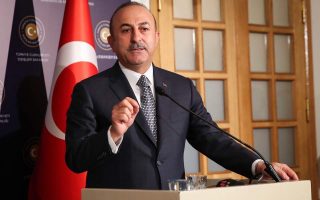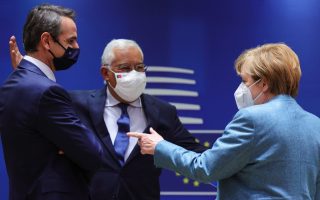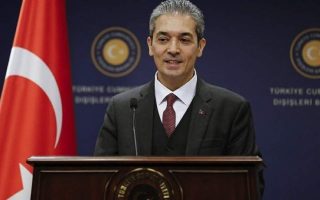Exploratory contacts resume with low expectations

Exploratory contacts between Greece and Turkey resume Monday at Istanbul’s Swissotel, with Athens having particularly low expectations of a substantial outcome due to the different agendas set by both sides.
Greece insists that the demarcation of maritime zones is the only issue up for discussion, while Turkey wants a whole range of issues on the table, from the demilitarization of Greek islands and “gray zones” in the Aegean to the rights of Greece’s Muslim minority in Thrace.
In light of these differences, Monday’s meeting of delegations is seen as a litmus test for the overall course of the exploratory contacts and a foretaste of the climate that will prevail in the coming months.
For the Greek side the outcome of these contacts will be contingent on the approach Turkey will take. More specifically, if Ankara signals a willingness to engage in a constructive discussion on maritime zones, as it did to some extent in 2003 and 2011, Athens will respond. In the event that Ankara keeps its cards to its chest, Athens will be open to a new round of contacts in Athens in February.
However, if Ankara insists on its “expanded” agenda, challenging Greek sovereign rights and national red lines, then the talks will be on thin ice.
Nonetheless, sources contend that the most likely scenario is that Turkey will opt to continue the exploratory contacts over the next six months, but without any prospect of concrete results.
Whatever scenario unfolds, according to government sources, Athens has no reason to break off the contacts as a blame game will almost definitely ensue, with both sides seeking not to be held accountable by the international community. What’s more, given the current health and economic crises, the government would not want to add a major escalation with Turkey on its already full plate.
Athens’ assessment is that Turkish President Recep Tayyip Erdogan will stay the course of the exploratory contacts as he could benefit from a period of calm in Greek-Turkish relations.
With the dialogue under way, Ankara will also avoid the possibility of sanctions at the March summit of European Union leaders. Moreover, it will have a clearer picture of US-Turkish relations under the presidency of Joe Biden, who is not expected to be as friendly to Erdogan as his predecessor Donald Trump.





